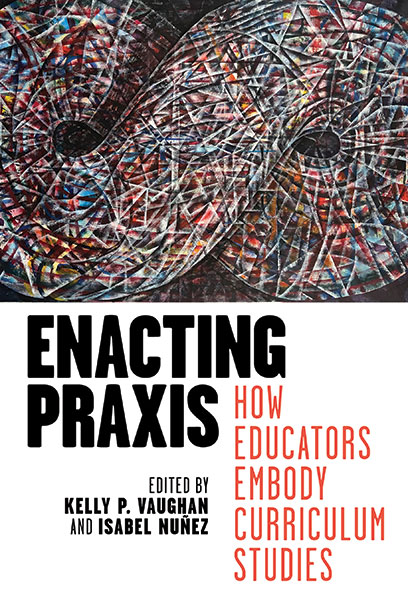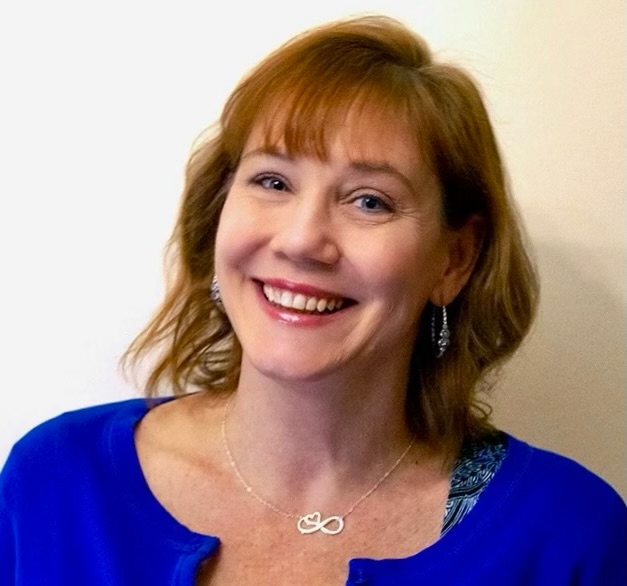By: Kelly P. Vaughan and Isabel Nuñez
Kelly P. Vaughan is an associate professor of English education at Purdue University Northwest. Isabel Nuñez is professor of educational studies and dean of the School of Education at Purdue University Fort Wayne. Her books include Hope and Joy in Education: Engaging Daisaku Ikeda Across Curriculum and Context (coedited with Jason Goulah).
Together they are the editors of Enacting Praxis: How Educators Embody Curriculum Studies.
In the last few years, we have seen contentious debates about the curriculum in our elementary and high schools. There have been calls for more diverse books and increased pressure to ban books; efforts to create more democratic classroom communities and school board meetings that erupt in threats of violence; calls for anti-racist curriculum and efforts to create fear about critical race theory. We see these debates as an illustration of what curriculum historians have described as a “struggle for the curriculum” (see Kliebard, 1995). The urgency of the struggle today has made the importance of key curriculum studies questions apparent: What is the knowledge of most worth? Who decides? Who benefits? (see Schubert, 1986).
As education scholars and teachers, we recognize that our answers to the curriculum studies questions are influenced by our fundamental understandings of the world and how it works. Such understandings (or theories) are expressed in everything we do. We also know that we, as teachers, enact theory, consciously or unconsciously, in every aspect of our curriculum deliberations and instructional practice (Schubert, 2021). We believe grappling with theory allows us to be more conscious and intentional about the frameworks supporting our teaching and to enact praxis, a cycle of theory, reflection, and action.
The current struggle for the curriculum is occurring within a particular historical moment. We have experienced a global health pandemic, protests against police brutality and systemic racism, and increasing economic insecurity. There is growing agreement that our current educational systems have failed too many; yet, there is also the possibility of creating something new. As we dream new possibilities, think with theory, and act with urgency, we turn to the work of curriculum theorists and practitioners for inspiration.
We have spent the last two years working with teacher educators, classroom teachers, and community educators, reflecting on ways we engage the theories of prominent curriculum studies scholars in our work. Specifically, we asked practitioners to engage with the theories of seven featured curriculum studies scholars, who we selected because they represent different foci with our diverse and multifaceted field, and because each of them, in their own way, engages with the ideas of praxis.
First, we feature William Schubert, whose example reminds us of both the power of curriculum historians to reframe dominant narratives and the power of teacher lore to encourage praxis. Next, we explore William Watkins’s work focused on race, history, and sociopolitical and economic dimensions of education. His research on social protest illuminates the power of activism within and outside the classroom. Third, we feature Maxine Greene, an existentialist philosopher whose work focuses on aesthetic education, literature, teaching, and social imagination, who invites us to engage with arts and teach wide awake. Then, we focus on William Pinar’s work, including his currere method of autobiographical inquiry, which calls us to practice “a kind of self-praxis” (Baszile, 2017, p. vii). Next, we call attention to Gloria Ladson-Billings’s work on culturally relevant pedagogy and critical race theory in education, which provides examples of theory-informed pedagogical and curricular innovation. Then, we highlight Janet Miller’s work, including her focus on feminist curriculum theorizing and her call for us to work in community and to engage in dialogue. Finally, we celebrate Carter G. Woodson’s legacy of transformative educational praxis, which included publishing Black and African history textbooks, starting the Journal of Negro History, founding Black History Week, and creating the Association for the Study of Negro Life and History (see Givens, 2016).
Our project has resulted in a book, Enacting Praxis: How Educators Embody Curriculum Studies, that will be published this month. Our edited collection includes the essays of more than 20 education scholars and teachers. We celebrate how the contributors interact with, apply, complicate, extend, and embody the theories of our featured scholars in their daily decision-making. Through this work, we invite our readers to think about how we will respond to the challenges of today. How will we bridge theory and practice? How will we dream and realize new possibilities? How will theory and action move us closer to the promises of more democratic, humanistic, and just schooling?
We believe engaging with examples of praxis informed by curriculum theorizing can help teachers embrace the theories that contribute to more fulfilling lives in the classroom and help curriculum studies remain vibrant and urgent, necessary to create the schools and communities all our students so desperately deserve.

Enacting Praxis
How Educators Embody Curriculum Studies
Edited by: Kelly P. Vaughan and Isabel Nuñez
Recommended works by the scholars featured in the book
Greene, M. (1995). Releasing the imagination: Essays on education, the arts, and social change. Jossey-Bass.
Ladson-Billings, G. (1994). The dreamkeepers: Successful teachers of African American children. Jossey-Bass.
Miller, J. L. (2005). Sounds of silence breaking: Women, autobiography, curriculum. Peter Lang.
Pinar, W. F., Reynolds, W. M., Slattery, P., & Taubman, P. M. (1995). Understanding curriculum: An introduction to the study of historical and contemporary curriculum discourses. Peter Lang.
Schubert, W. H. (2009). Love, justice, and education: John Dewey and the Utopians. Information Age.
Watkins, W. H. (2001). The white architects of Black education: Ideology and power in America, 1865–1954. Teachers College Press.
Woodson, C. G. (2011). The mis-education of the Negro. Tribeca Books. (Original work published 1933)
Works cited
Baszile, D. T. (2017). On the virtues of currere. Currere Exchange Journal, 1(1), vi–ix.
Givens, J. R. (2016). Culture, curriculum, and consciousness: Resurrecting the educational praxis of Dr. Carter G. Woodson, 1875–1950 (Publication No. 10150944). [Doctoral dissertation]. ProQuest Dissertations and Theses Global.
Kliebard, H. M. (1995). The struggle for the American curriculum: 1893–1958 (2nd ed.). Routledge.
Schubert, W. H. (2021). Curriculum theory as a life-long search for perspective from context and reflection. In M. A. Peters & R. Heraud (Eds.), Encyclopedia of innovation in education. Springer.
Schubert, W. H. (1986). Curriculum: Perspective, paradigm, and possibility. Macmillan.


